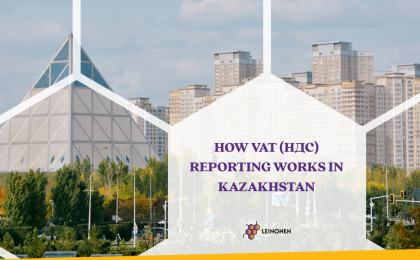One tax that is particularly relevant for foreign investors and intellectual property (IP) holders in Kazakhstan is the royalty tax. This tax applies to payments made for the use of intellectual property rights, patents, trademarks, copyrights, and other intangible assets. Understanding royalty taxation in Kazakhstan is crucial for companies engaged in licensing, franchising, and other IP-related activities. This may be the difference between having a margin of profit for a business that makes it more competitive than in another jurisdiction. It is especially important for IT companies that deal mainly in intellectual property.
Definition of Royalties in Kazakhstan
Under Kazakhstan’s Tax Code, royalties are defined as payments made for the right to use or transfer:
- Copyrights, patents, trademarks, and industrial designs;
- Software and databases;
- Trade secrets, know-how, and other confidential business information;
- Motion pictures, audio recordings, and broadcasting rights;
- Any other intellectual property or licensing rights.
Royalty Tax Rates and Withholding Tax
Royalty tax in Kazakhstan primarily affects non-resident entities receiving payments from local businesses. The key aspects include:
- Withholding Tax for Non-Residents:
- The standard withholding tax rate on royalties paid to non-residents is 15%.
- This rate may be reduced under Double Taxation Agreements (DTAs) if Kazakhstan has a tax treaty with the country where the non-resident entity is based. Some treaties lower the rate to 10% or even 5%.
- Corporate Income Tax (CIT) for Residents:
- If a resident company receives royalties, they are subject to Kazakhstan’s corporate income tax of 20%, applied on net taxable income.
Double Taxation Agreements (DTAs) and Their Impact
Kazakhstan has signed DTAs with many countries to avoid double taxation on income, including royalty payments. These agreements often specify reduced withholding tax rates. To benefit from a reduced rate, non-resident entities must:
- Provide a certificate of tax residency from their home country;
- Submit an application for DTA benefits to the Kazakhstani tax authorities.
VAT on Royalty Payments
In addition to withholding tax, royalty payments made to non-residents may also be subject to Value Added Tax (VAT) at a standard rate of 12%. If a Kazakhstani company pays royalties to a foreign entity, it is responsible for:
- Withholding 12% VAT on the gross royalty amount;
- Self-assessing and remitting the VAT to the tax authorities.
Tax Compliance and Reporting Requirements
Companies paying royalties in Kazakhstan must ensure compliance with local tax regulations, including:
- Properly calculating and withholding tax from royalty payments;
- Filing tax declarations and reports with the State Revenue Committee;
- Keeping documentation proving the nature of the royalty payments and the applicability of DTA benefits.
Potential Tax Optimization Strategies
Businesses operating in Kazakhstan can optimize their tax burden on royalties by:
- Structuring licensing agreements in a way that benefits from the most favorable DTA terms;
- Considering alternative forms of payments (e.g., service fees) where applicable;
- Ensuring all required tax residency documentation is in place to claim reduced withholding rates.
Royalty taxation in Kazakhstan is an important consideration for businesses dealing with intellectual property and licensing arrangements. With a standard 15% withholding tax on royalties for non-residents, plus potential VAT implications, companies must carefully plan their tax compliance strategies. Utilizing double taxation agreements, proper documentation, and tax planning can significantly reduce the tax burden and improve financial efficiency.
For businesses engaged in IP-related transactions in Kazakhstan, staying informed about regulatory updates and seeking professional tax advice is essential to ensure compliance and optimize tax liabilities.





